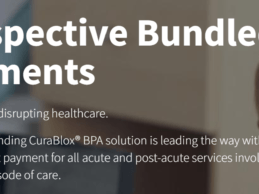What You Should Know:
- Over the past few years, Artificial Intelligence (AI), and more specifically, Machine Learning (ML) technology, have experienced rapid adoption in the healthcare space as tools for diagnosis and decision-making. Such tools are intended to address challenges in the healthcare system to both processes and put into practice the proliferating medical findings, and also to support delivery of the promise of personalized and precision medicine.
- Unintended bias in AI and
Read More
technology in healthcare
The Seemingly Limitless Potential of Blockchain in Healthcare
Interoperability remains the Holy Grail in healthcare, the goal to which all organizations aspire. The urgency to remove silos and improve communication between various systems and organizations is paramount, as it promises to lead to greater efficiency and improved outcomes while at the same time lowering costs – and not a moment too soon, given the fact that the world’s population is aging and there is a growing shortage of clinicians.
More and more, blockchain – a secure, decentralized
Read More
Patient Engagement: 3 Lessons Learned from Consumer & Service Industries
If there’s been a constant in healthcare the past two years, it’s been in the rapidity of change, largely in response to the Covid-19 pandemic. Suddenly, healthcare needed to adopt new work models and technologies to provide proper patient care. No wonder healthcare ranked atop all other industries in “new ways of working and processes,” “new tech tools and infrastructure,” and “new staff wellbeing practices,” in a recent survey of 1,200 business leaders.
Inevitably, healthcare organizations
Read More
Can Automation Drive Health System Outcomes?
The United States spends about $1 trillion per year on healthcare administration. 95% of healthcare workforce growth since 1990 has been administrative. But adding administrative staff hasn’t helped health systems stay on top of the increase in manual work queues, and it certainly hasn’t been improving outcomes for patients. So when asked if automation can drive better health system outcomes, through my work in healthcare technology, I know for a fact that it already is.
Research has
Read More
How NLP Can Uncover Social Determinants of Heart Disease
Heart disease is the leading cause of death for people of most racial and ethnic groups in the United States. Cardiovascular disease-related deaths—which occur every 36 seconds—cost our country about $219 billion each year, according to the Centers for Disease Control and Prevention (CDC). People with poor cardiovascular health are also at increased risk of severe illness from COVID-19, so the time to act is now. There’s no time like the present to look at major risk factors—from obesity and
Read More
Can AI Pave the Path to Reducing Physician Burnout?
The timing couldn’t be more critical for us to start making serious headway to reduce the growing problem of burnout among America’s physicians. In 2018, physician burnout was already at an alarming 42%, but that number is growing as COVID-19 cases surge around the country.
While we are at a hopeful place in the virus’ trajectory with millions of vaccinations administered, the reality – even once we get through the pandemic – is quite grim for physicians and their
Read More
The Combination of 5G and AI Will Transform Healthcare in 2021
Not many will disagree that the global pandemic has accelerated the use of technology in healthcare. With a healthcare system stressed to a breaking point, medical professionals have had to prioritize critical cases and increasingly turn to technology tools such as telemedicine and remote patient monitoring to manage the needs of their non-COVID patients.
As we begin to look beyond the pandemic, we will not only have the lessons of this time but improved tools to support the delivery of
Read More
IoMT Is Improving Patient Access: We Must Avoid Creating New Barriers
The Internet of Medical Things (IoMT) is changing the face of healthcare and has the potential to significantly improve patient access as well as system efficiencies. The adoption of telemedicine, for example, spurred on by the Covid-19 pandemic, has spread rapidly. Forrester revised its forecasts to predict that virtual care visits in the United States will soar to more than one billion this year—including 900 million visits related to Covid-19 specifically. Likewise, in the United Kingdom,
Read More
Signify Health Acquires Healthcare Payment Blockchain Company PatientBlox
Signify Health, a leading provider of technology-enabled healthcare solutions designed to keep people healthy and happy at home has acquired PatientBlox, an Atlanta-based technology company with deep expertise in applying distributed ledger technology in healthcare. The acquisition accelerates Signify's prospective provider payment capabilities for episodes of care, supporting the company's commitment to advance value-based care through novel payment and risk arrangements. Financial details of
Read More
Redox Adds Data on Demand, Single Sign-On Access to Interoperability Platform
What You Should Know:
- Redox adds data on demand and single sign-on access
features to its cloud interoperability platform to help to simplify the process
of developing software for healthcare.
- Both new features are now available to all customers on
the Redox platform.
Redox
Inc., a Madison, WI-based interoperability platform for healthcare data
exchange, unveiled Data on Demand, which enables software developers to query
any electronic health
record (EHR) or healthcare data source
Read More










